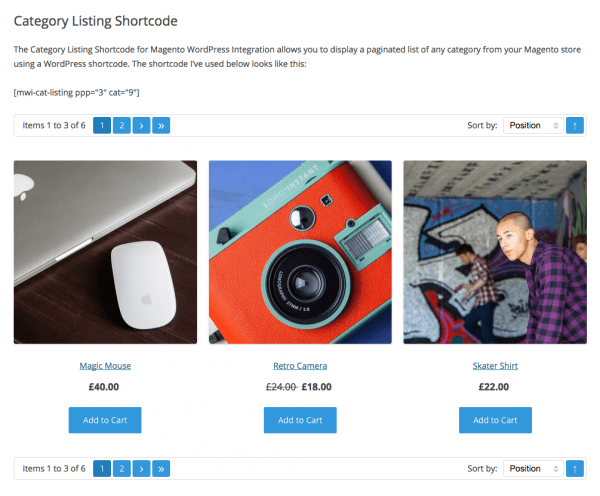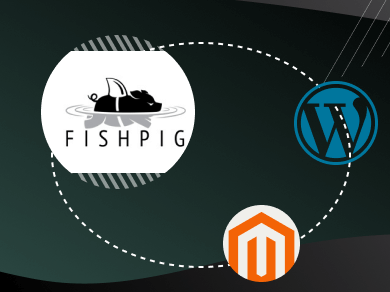WordPress and Magento are two internet giants – but did you know you can combine the two? Here’s our guide to integrating WordPress and Magento.

Everyone knows that Magento is the eCommerce Giant, while WordPress is it’s blogging, SEO, and CMS counterpart. So you, a smart and entrepreneurial store manager, have a carefully-crafted and functional Magento store for your eCommerce business.
On the other hand, you’ve built a beautiful WordPress website or blog that discusses, showcases, or reviews some of your Magento eCommerce products. Or, maybe you have a website that is built using a combination of both Magento and WordPress features.
In any of these cases, integrating WordPress and Magento is the natural choice for your business. Marrying WordPress and Magento can integrate your themes, break down any barriers to order completion, and increase the ease of navigation between the two platforms.
April 2024 Offer – For a Limited Time Only:
Get WordPress 99+ Plugins Mega Bundle for 15% off! Don’t miss out!
As a publication platform, WordPress will allow you to promote your products effectively through communication with customers, better SEO, and a user-friendly platform for product information management.
Meanwhile, Magento can handle the ins-and-outs of the eCommerce business including creating and managing products, creating orders, and making shipments.
Now, there are more and more options that let you harness the power of both platforms to get a social and functional eCommerce experience.
Before we start, it’s important to note that CreativeMinds has WordPress and Magento specialists ready to integrate solutions for you.
You can find all information below, but if the technical steps overwhelm you, get in touch with us right now so we can help!
The Benefits of integrating WordPress and Magento Include:

- Integrate WordPress site and Magento store themes.
- Increase SEO of eCommerce products.
- Share features and components from either platform including static blocks, navigation menus and cart data.
- Create a seamless blog-to-cart user experience: feature products on WordPress with direct links to the user’s Magento cart.
- Single login options that avoid barriers to order completion and increase UEX.
WordPress Magento integration is still a new frontier, and this integration solution faces stiff competition from WordPress Marketplace and other WordPress eCommerce solutions.
So, the pickings for suitable plugins or extensions that effectively integrate Magento and WordPress are slim. Luckily, we’ve done all of the digging for you! Below, we will explore a few solutions that deal with the most crucial aspects of WordPress Magento integration.
Magento WordPress Integration (MWI) by James Kemp
Magento WordPress Integration is a (Free!) WordPress plugin designed by James Kemp that helps you integrating WordPress and Magento themes – including for responsive themes!
For example, you can add any default Magento blocks, static blocks you create in the Magento admin area, or ones you have created yourself to your WordPress theme. In order to use this plugin, your Magento and WordPress websites need to be hosted by the same server, but they do not need to have the same domain name.
Although this plugin does not allow you to completely avoid using Magento on your website, it’s a great solution for elegantly hosting click-to-cart Magento product lines on WordPress.
The James Kemp Magento WordPress Integration plugin offers a couple of add ons that further integrate your eCommerce Magento store and your WordPress website. In fact, even though the initial plugin is free, it’s more than likely that you will want one or both of these add ons to complete your integration:
- The Category Listing add on ($20) creates a shortcode button that inserts a paginated category listing of your Magento products in your WordPress editor. The plugin comes with an easy-to-use shortcode generator, allowing you to modify columns, products-per-page, button colours, and much more.

- The Shortcodes add on ($18) provides you with shortcode buttons to insert products, layout blocks, and static blocks in your WordPress editor. This is a great option to advertise your products and give your customers a way to add products to their Magento cart directly through WordPress. You can even use the Shortcode generator button to create your shortcodes!
Magento WordPress Integration by Fishpig
Magento WordPress Integration from FishPig is a (Free!) extension for Magento eCommerce to integrate WordPress and Magento.
You can download the extension from Fishpig site.
With this extension, you can use your Magento theme for your WordPress blog and easily login to both admin backends with a 1-Click login for both sites from your Magento Admin account.
Fishpig’s extension also allows you to associate WordPress posts with Magento products and to create menus in WordPress and then add them to the Magento Topmenu.
Finally, you can use WordPress shortcodes and widgets using the the add-on Shortcodes & Widgets.
Additional features make the Fishpig extension a great option for stores that operate in languages other than English or in multiple languages. The extension now comes packaged with full translations for Brazilian, Chinese, Czech, Danish, Dutch, French and German, Italian, Japanese, Norwegian, Polish, Portuguese, Spanish and Swedish.
Additionally, Fishpig offers 12 WordPress integration extensions that improve performance and user experience of your integrated Magento and WordPress sites.
The large selections of extensions include options that further integrating WordPress and Magento by creating multiple site integrations, or pushing the integration into a wider array of WordPress content areas and types. The most interesting add on extensions offered by Fishpig include:
- The Magento WordPress Multisite Integration (£99) extension allows you to integrate a WordPress MU installation into Magento. This means that you can associate a different blog with each Magento department store!
- The Post Types & Taxonomies (£99) extension offers separate templates to display different custom post types in your integrated WordPress blog in Magento and to make certain posts stand out.
Need More?
You can also check and purchase All Access Pass Packages with dozens of WordPress, Magento 1 and Magento 2 products developed by the CreativeMinds team.



